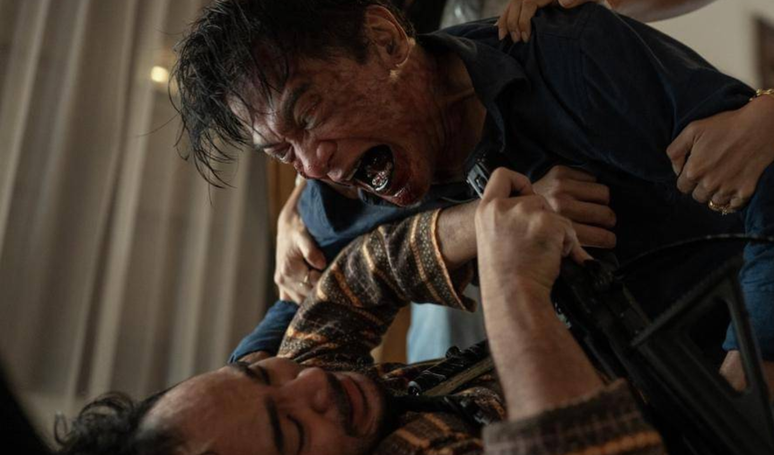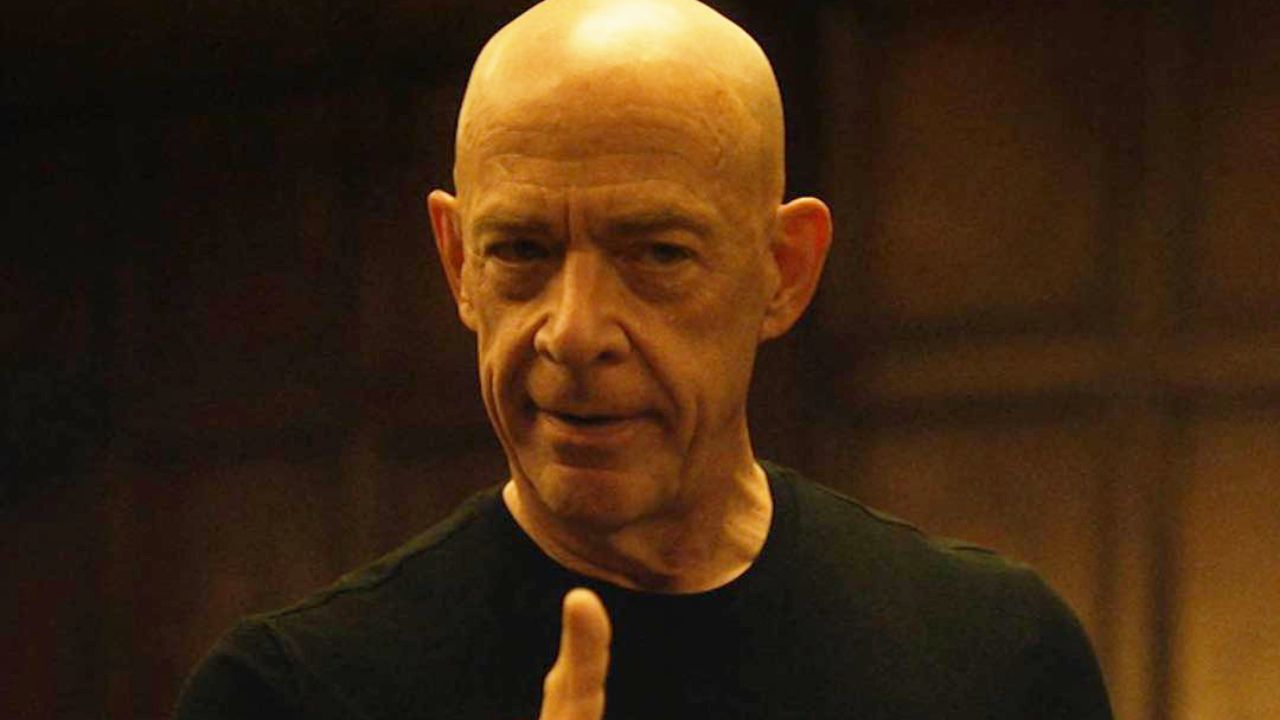______________________________
For several years now, the actress Aksenova has had one invariable rule – every winter she leaves for the winter in warm countries to reboot before the new filming season. Our conversation caught Love in India, where she came with her husband. This immediately set the tone for the conversation. Measured, measured, thoughtful.
Seven years ago, on the set of Pyotr Buslov, I first met India and fell in love,” says Lyuba. “Since then, every winter my husband and I come here almost like visiting a grandmother in the village. This time we even managed to travel a bit – Pasha showed me Jampur. This is a city that at first glance is no different from others: people live, work, lead their lives. But how much is happening at this moment! You start filming and you are enveloped in a wave of events: a cow passed by, fish swam there, a horse-drawn carriage rushed by, and then the same one, but with a camel. I really like to watch this life, full of colorful pictures.


You probably know many interesting places. Which one would you recommend for a first trip to India?
Definitely worth a visit to Auroville – those who love meditation will like it there. In addition, Auroville has very unusual architecture. If you just want to relax, then you need Goa. The northern part is wilder, the southern one is neat and clean. Everyone, I am sure, will find their special place in India.
People often go to this country to be enlightened, to rethink life, to reboot. Can you say that you can do it?
In India, I always feel good … rest. I set up my life in such a way that most of the year I am in Moscow. I work, I devote a lot of time to my creativity, I meet different people, I develop projects. And I just need some time to rethink, to an ordinary life with simple desires. For example, it’s trivial to read a book or go in for sports so that a schedule is set up – two workouts a week. During filming, this is absolutely impossible!
You are now in a very fruitful period – project after project. There are no books here.
Therefore, I also come to India to study. I am currently taking two courses. One is for voice work. Although I studied at the theater, but, firstly, it was a long time ago. And secondly, it is a skill that must be updated. Another course is on working with the body. Such tools that can help me in mastering new bodily practices – from dancing to hand-to-hand combat and sword fighting.

So India is an ideal country for you to live?
Probably not. I love changing directions. It’s always like this for me: if you like it somewhere, you immediately have a desire to live there for at least a month. This time is enough for me to explore the territory. But I cannot say that any of the places where I live is preferable. I feel good where my family and friends are.
It’s good in India, but I really love Moscow, and also Kaliningrad. I lived there for an amazing time and was completely fascinated by the city. A couple of years ago we filmed the film “Nuremberg” directed by Nikolai Lebedev there. This is the biggest film of my career. We filmed it in Europe and Russia. I play the role of Lena, a Russian girl who ended up in Nuremberg at the time of the trial of the Nazis. War changes people a lot. Lena understands the value of human life and tries to save it by all means.
By the way, how do you like Indian cinema?
Adore! I’d love to be in one like this. Play some militant girl-super agent, always Russian. Indian cinema bribes me with the fact that in Bollywood they shoot everything on the edge: you look and think – how could such a thing even come to mind? But at the same time, Indian films are perceived easily and cheerfully. Yes, I really wanted to play like this! Who knows, maybe everything is ahead of me?

In the meantime, you have another premiere ahead of you – the second “Kidney”. At the beginning of the series, your character, fire safety inspector Natalia Kustova, finds it difficult to empathize despite her fatal diagnosis. She is so selfish and unprincipled.
I liked how Boris Khlebnikov once said about the character Natasha Kustova: “She is like a weed – there are no opportunities for continuing life, but she still grabs and survives and survives.” Such a zeal for life inspires me in it – it’s interesting to watch. And one more thing: usually the narration in films and TV shows goes in such a way that the hero changes in the course of events. And in The Kidney, Natasha always remains herself, but the viewer’s attitude towards her changes when he gets to know her better: “Well, of course, she had such a family, such an environment. She wouldn’t be different.”
For me, “The Kidney” is a kind of fairy tale about a grymza, which turns out to be, in general, not at all cruel and not selfish, capable of doing good. In the second season, Natasha will meet with a world unfamiliar to her before and with a feeling that can be called love. I won’t spoil it, but it’s going to be a really unusual adventure.

Since we are talking about good and bad people, who do you think is more entitled to love?
It’s hard to judge. I believe that everyone should at least once feel loved and fall in love themselves – because this is such a feeling that transforms and changes attitudes globally. To the world, to people, to life. Therefore, maybe a bad person needs to be loved even more so that he becomes good.
What is important to you in a relationship?
It is important to understand that the other person is not you. And let him be who he is. It only sounds pompous, but in fact it is. And when you allow a person to be himself, he allows you the same. It turns out that you just feel good together – and you don’t need to invent anything and try too hard. All efforts, on the contrary, interfere with relationships.

In “Stories” there was this phrase: “What to fuck with you.” How important is the intellectual base in a relationship and can limited thinking kill feelings?
The girl I was lucky enough to play in “Stories” wanted to develop! Therefore, whenever I hear condemnation against her, when they say that she is stupid, I defend her: look, she crawls into Wikipedia, tries to learn something, to surprise, to give her knowledge. And he does it sincerely. It was very important for me to add this particular trait to my heroine, to show that she is inquisitive. I think if the characters of my novel had continued to meet, it would have developed further. He met a blank slate, he could have continued to tell her everything, and she would have absorbed it like a sponge. But he could not overstep his convictions. Well, God be with him!
You are so touching and sympathetic to your heroines. Do you see people the same way in everyday life?
I’m used to digging inside a person, to see where his deeds grow from – this is already professional. I have one friend whom I couldn’t figure out at first. It seems like an ordinary person, without bright manifestations, but still some kind of special.
And then one day we are talking with him, and he says: “I do not condemn people.” And I understand that he really does not globally condemn anyone – that’s what attracted me so much in him on a subconscious level. From that moment I decided: since I have an excuse for my heroines, then I want to treat people the same way. Let’s see in the long run how true this position is.

The plot of “Kidney” develops around the problem of terminally ill people. Do you have any relationship with foundations that help such people in reality?
Recently, I rarely collaborate with foundations at all – due to the lack of activity on social networks. When I can, I try to do something for the Shalash Foundation, which helps children, parents and teachers cope with aggressive behavior and unwillingness to follow the rules. The foundation has the following wording: “Not difficult children, but children who find it difficult.” I think that education gives a lot, and a lot of problems can be solved by helping people learn how to learn.
How do you think, to what extent can one be ironic about death?
Masha Shulgina, the director and one of the screenwriters of “The Kidney”, said this very well: “If you can look at the situation with humor, there will already be a therapeutic effect.” Thus, you do not run away from the problem, do not close your eyes and ears, but admit: yes, it exists. And then you decide what to do with it next. Masha, together with Liza Tikhonova, another screenwriter, through our story opened up a new world of people with kidney disease for me, showed what difficulties they face, what they have to go through.
And by the way, often these people turn out to have a good sense of humor and a will to live that many of us can only envy. These are strong people. And I look at life the same way now: if something bad happens to me, I try to find something positive and funny – this is a worthy first step towards solving the problem. The Kidney project has a social significance, and this is important to me. After the first season, the creators of the series received a lot of letters: the audience asked how and to whom they could help.

You are a popular actress. Surely you have to read a lot of scripts – to agree to something, to refuse someone. Can you, based on this, give your assessment of our cinema? Where are we heading and what awaits the viewer?
Still, I am not a visionary, it is not known what will be filmed, and what will never reach the shooting period. But here’s what I can say with confidence: we have new cultural figures – young guys who bring new life to the cinema.
And it’s great that now not only new projects are being released, but old ones are also being restarted. Take, for example, a film about Cheburashka. This is a story that brings generations together. And it doesn’t matter at all whether she likes it or not – both the grandmother and the grandson will have something to discuss with each other after watching. In this I see a big plus of such projects. Therefore, it seems to me that Cheburashka is such a success.
There will be more experimental films. Among my friends there are many enthusiasts who sincerely try to give the industry something interesting, to bring it to a new level. They are ready to invest a lot of effort and resources. With such people for our cinema, you can be calm.

Interview: Alexey Zimin
Photo: Maxim Churkin
Style: Alina Sokolova
Makeup: Irina Ivanova
Hairstyle: Pavel Chernienko
Producers: Anastasia Pavlova, Alexandra Karyakina
Source: Hellomagazine
Ashley Fitzgerald is a journalist and author at Gossipify, known for her coverage of famous people and their lives. She writes about a wide range of topics, including celebrities, influencers, social media stars, and public figures. Her articles are known for their in-depth analysis and unique perspective. She is respected for her ability to keep readers up to date with the latest news and trends of the famous people.








